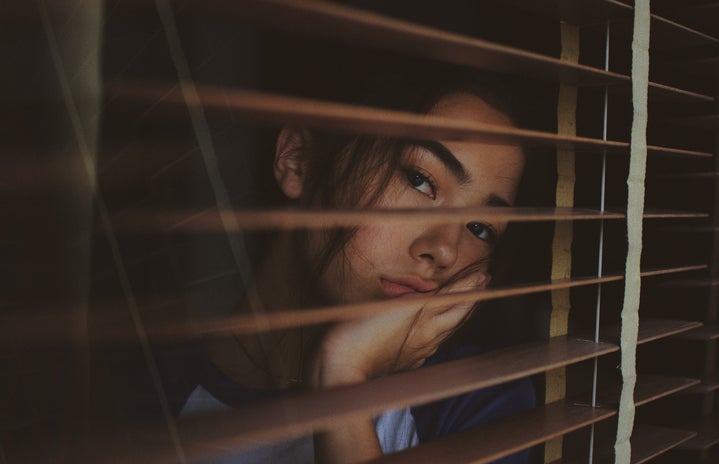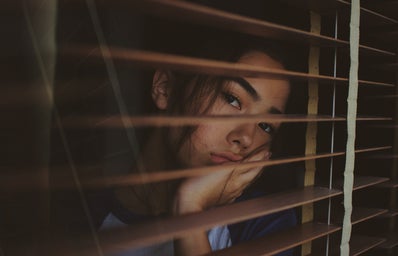We are told that our skin regenerates itself every twenty-seven days. When the epidermis regenerates, it will replace, repair, and renew old cells. Although this turn-over will slow over the course of our lifetime, reducing the rate at which the cuts, scars, and bruises that we gather throughout the years heal, it’s still safe to say that approximately every month, our bodies will shed the reminders of our past that are but skin-deep.
I’ve been in quarantine since early March. At the time of writing this, it is August 9, 2020, which means I’ve been secluded from the rest of the world for a little over five months. In that time, my skin has replaced, repaired, and renewed itself almost a half a dozen times – and yet, the cycle that I have fallen into, the pattern that the world itself has succumbed to, seems anything but renewing.
Our bodies can represent so much of who we are, and everything we’ve fought to preserve of ourselves. Our skin, the largest organ of our bodies, nurtures the full history of our lives; our triumphs, our shortcomings. For my grandmother, the two scars running bilaterally across her chest are a testament to her battle with breast cancer. For my mother, a white crevice, pitted just beneath the arch of her widow’s peak reminds me of the time she wagged her finger at me and reminded me not to pick at my wounds. I have a friend who, as a child, cracked her head against a cabinet, resulting in several stitches and a permanent slit in her eyebrow (which is now, incidentally, a trend). I burned my hand while cooking a few months ago, and even with the help of every ointment known to man, the brick-read sear remains embedded into my palm.
Scars can be sexy–looking at you, Dermot Mulroney, the 80s dreamboat of my tweendom–but they can also be identifying, and to some, harrowing reminders of the things in our life that have left us, for better or for worse, irrevocably altered.
I’ve had a lot of time to think over quarantine. Too much time, actually, because when the mind is left alone long enough, thoughts don’t just flow in a steady stream of consciousness–inspiring the sort of productivity that encouraged Shakespeare to write King Lear during the plague, or Taylor Swift to create the masterpiece that is Folklore during the current Covid-19 crisis–they start to fester. The brain is, fundamentally, a pattern seeking device, and when the pattern we’ve weaved in our mind, whether it be work, school, parenthood, or marriage, becomes disrupted, or screeches to a sudden halt, we may find ourselves at a loss. For me, the last few months have felt unmoored, untethered lapses in my life that are independent of who I actually am; these past few months have existed in an inconsequential bubble of trial and error. Attempts to repair old relationships, or bake sourdough from scratch, have all fallen within that illusion. The skin that I have shed in the past five months has not felt like my own, the cells that have fallen along with it no more than foreign antibodies, a threat to the greater host, and the hair that I gather in my hands at the end of a piping-hot shower seems to belong to someone else’s head. I simply do not feel like myself, and the world that spins around me is not one that I recognize, or, perhaps more unnervingly, not one I care to know.
I’m not saying this to convince anyone to pity me. I’m saying this because, as a culture, we consider ourselves the sum of what we’ve lost. I had a virtual professor in high school who spent fifteen years as a board-certified lawyer and was forced to quit over a clash of culture in the workplace. He spent the next thirty as an online educator, yet, whenever anyone asked, he would proudly say: “I’m still a lawyer at heart.” My mom still uses my father’s surname, even though they’ve been separated for over a decade. And, albeit I’ve always had long hair, I chopped it all off two years ago. I sported a cute bob for as long as I could maintain it, but I never stopped squirting ginormous globs of shampoo into my palm, even though I only needed a dime-sized amount with my shoulder-length ‘do. What I mean to say is, we cling to the past. It’s natural. The past is the only version of ourselves that we can confidently say we knew.
We create monikers like ‘widow’ and ‘orphan’ because some of our identity is inextricably entwined into what or who we once were and, perhaps, no longer are. Because, when the metaphorical music stops, the only thing we’ll leave of ourselves on this earth are the fingerprints we’ve made and the dust we’ve shed in the process. Dust, like any snot-nosed middle schooler will tell you, is made of fine particles of dirt, pollen, and, most notably, human skin. We shed these parts of ourselves not only because they no longer serve us, but because beneath any layer of skin that you peel away, there will be another reforming. Reinvention is as necessary as it is normal.
I have to believe that once quarantine is over, there will be a rebirth; we will peel up this layer of darkness and there will be reform. My skin, which has survived surgeries, scars, bruises that look like rotting apricots, papercuts from my favorite novels, acne outbreaks, and yes – even nights slept away in makeup – has proven to me that if I am capable of nothing else, I am capable of renewal. At least, this is the hope I choose to bank on, and one that I encourage those around me to share in. There are years that ask questions and there are years that answer them, just as there are moments of pain and moments of healing. My endless thinking and my uninterrupted solitude during this time of panic has allowed self-doubt, fear, and anxiety to fester, but it has also afforded me the opportunity to look inward at myself, inward at the pattern my life had taken before disaster hit, and to ask the questions that I’d be too afraid to ask otherwise.
Am I the best person I can be? Not only for myself, but for others? Am I shedding parts of myself that I don’t need, or simply that I do not want? And am I preserving the things that I should love most about myself? Am I capable of loving who I will become more than I miss who I used to be? Am I doing enough to enact the reform I want to see not only in myself, but in the world around me?
These are questions that have stood at the forefront of my mind for the last several weeks. They are by no means groundbreaking, but they are reminders that I am a work in progress. We reserve the right to be able to replace, repair, and renew our current self, every single day, with something better, brighter, fuller, more compassionate, honest, loyal, and caring. If anything, Covid-19 has taught me that there is no promise for a tomorrow, so if I have to force myself to stop thinking of healing as an “end goal” and reroute my belief system to think of it as a continual habit, I will.
We can stimulate skin renewal. We can exfoliate, moisturize, and improve our diets. All of these things might make our skin shed a little faster, and appear glowy, supple, and delectably plump, like the picture-perfect beauty gurus we watch in our spare time. But our attempts at renewal shouldn’t only be skin-deep. Renewal takes recognition. Renewal takes willingness, time, and effort. But it is possible, and at some point, we will be able to harness the reassessments we’ve made of our lives in this time of inactivity and implement it into our plans for the future. We will be able to use the denaturing of the patterns in our life as an opportunity to funnel discontent into actual change. Change for our lives, our communities, our relationships with others.
We shouldn’t want to go back to ‘normal,’ to whatever degree of comfortability existed before we were forced to evaluate our faults as a society and as an individual head-on. We should be striving toward a future that is more equitable and less cruel than whatever we allowed to be brushed under the rug in the past. We lose nothing by continuing to grow, and will only gain by our maturity and expanded understanding.
Our skin regenerates every twenty-seven days. When I consider this, the question that stands out most to me is: Will I like the person I see in the mirror when this version of myself sheds and falls away?



